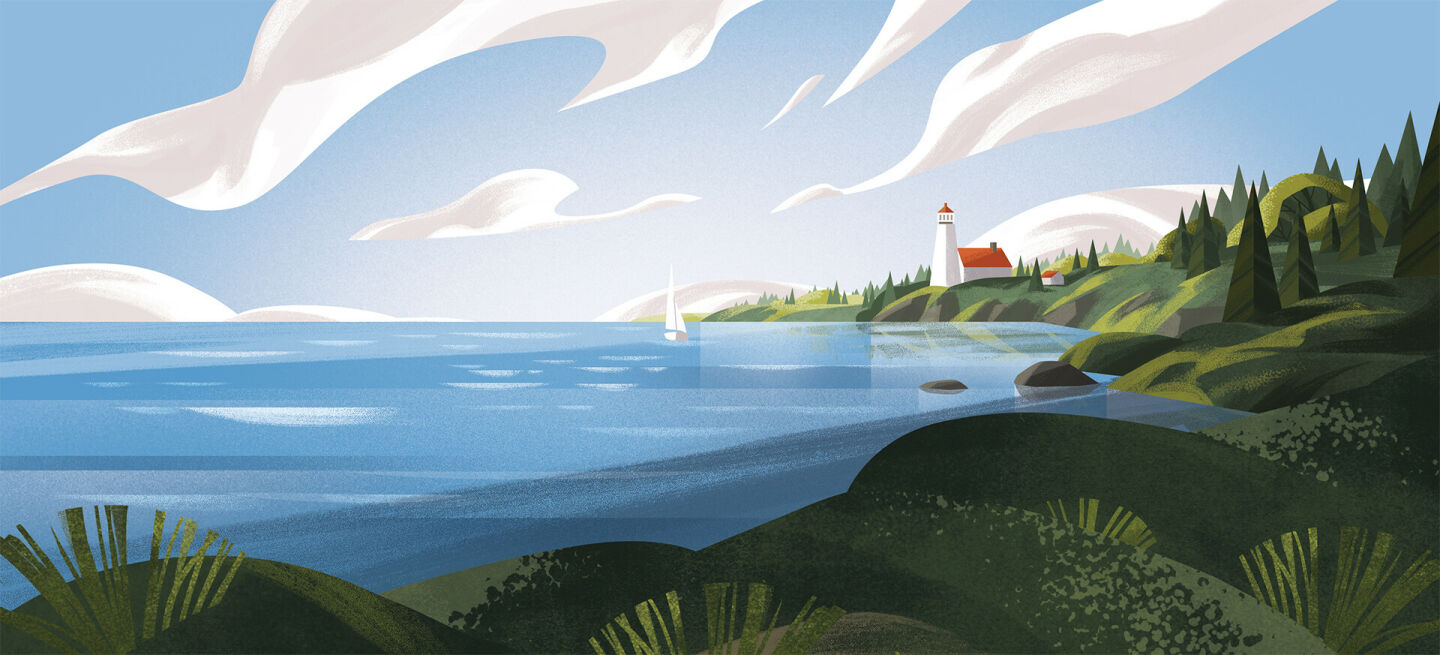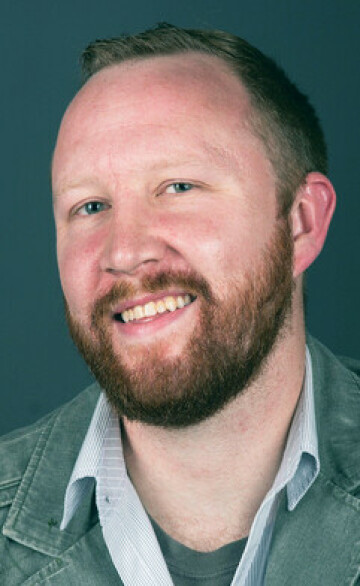COLUMN: A Need to Escape Leads Us to Our Authentic Selves
listening, finding peace helps us deepen our roots with our community
Jonathan Rylander, illustrated by Grace Pedersen |

Jonathan Rylander, illustrated by Grace Pedersen |

Upstairs, our enormous dog cools himself in the A/C, which gives us nearly an hour in solitude to relax by the lake. Two days ago, we came back to Door County. We drove in through Sturgeon Bay, then on into Egg Harbor, then Fish Creek, then Ephraim. Door County is like New England with the perfect amount of Wisconsin Edge: cute shops, local eateries, and good coffee, all nestled along the rugged shoreline of Lake Michigan. Last year, we came to escape the pandemic. This year, I’ve come to write.
I open my leather-bound notebook, tapping my pen and trying to figure how to begin a book-length memoir I’ve encouraged myself to work on this summer. But, where to start? With what memory do I begin? Questions like these have lingered with me not just this weekend, but for the past year. And so, I sit. And I think. And I tap – until my partner Chris looks at me in a way that says he is poised to talk.
That’s when I put down my pen and give into conversation.
You see, I’m a writing center guy – the director of the Center for Writing Excellence at UW-Eau Claire – which means I care, perhaps a tad too much, about the power of conversation in producing strong writing.
”
Perhaps our need to escape stems from a reluctance to slow down and listen to the everyday Happenings.

JONATHAN RYLANDER
“I just don’t know where to start it,” I confess. “And I’m trying to do something different.”
My thoughts flip through the core themes of my writing: Shame. Desire. Growing up feeling embarrassed because of who you are or who you want to be. “How do I structure this thing?” I ask, with the complex ideas jumbling through my head like the shores of Lake Michigan, wading and receding – always moving with time.
“Well, what have you written?” Chris asks. I can always trust him to be clear-cut. Blunt. Every writer needs honesty, no matter how much they may prefer otherwise.
“I mean, I’ve written a lot,” I say, “but I want the beginning to feel right. You know what I mean? Those first pages matter. I have to make it matter to readers. But, how?”
I am frustrated; he knows it. I take a sip of water. He checks his phone, and then looks up. “I think you just need to start writing,” he says. “Just bring us back to a moment with you.”
Of course, I’ve heard writing advice like this before. But his advice seems different. Perhaps it’s his tone. Or the way he looks at me, or how he reads my body language.
When I work with new writing assistants in the writing center, we talk a lot about body language. But – perhaps more importantly – about listening. Too often, listening gets a bad rap – gets articulated as a passive exercise when just the opposite is true.
In the writing center, we talk about the importance of active listening, of tuning out the “I” to really hear the “you” and the “we.” Finding the collective in writing is liberating – those “aha” moments like the one happening to me here on the sandy shores of Ephraim. The moments when you realize that some things in writing are more about “us” than they are about “me.” When we listen to others, we affirm their experiences, their pasts, their hopes – their struggles that are universal in the sense that at least someone else has experienced something similar. I have witnessed, first-hand, how such affirmation can unravel in the classroom and in the writing center – it’s in the look, the smile, the nod when a student recognizes they do not need to feel ashamed to write about this or that aspect of their identity because they are not alone.
We go on vacation to feel inspired. And how lucky am I to work and write in a state as beautiful as this?
Yet I wonder: perhaps our need to escape stems from a reluctance to slow down and listen to the everyday happenings: to spark up conversations here and there – maybe at work, maybe at the coffee shop back home.
These conversations guide us to be ourselves. The real you, the real us.